Netflix’s ‘Boots’ is a comedy-drama show where a teenage boy seeks to find an escape from his old life through enlistment in the Marines. Cameron Cope is a closeted teenager living through the homophobic society of the 90s. Therefore, he sees an opportunity to turn his life around when his best friend, Ray, decides to enroll in the Marines’ boot camp. Yet, it’s only when he actually arrives at the Parris Island training grounds and discovers what the reality of becoming a Marine looks like that he begins to realize he might have made a grave mistake. Consequently, now the young man must face the toughest 13 weeks of his life, filled with relentless training under militaristic, hawk-eyed drill sergeants. Fortunately, despite its rough start, the camaraderie that Cameron and Ray find themselves surrounded by ends up being the silver lining that promises to carry them over to the finishing line. SPOILERS AHEAD!
Boots Recap
At 18, Cameron Cope finds himself at a transformative point in his life without any real idea of how to move forward. His social life mostly consists of interactions with ruthless bullies, and his family is made up of an uncaring brother and a narcissistic mother, whose schemes continue to run them out of town every few years. In fact, the one good thing in his life, aside from his lack of internalized homophobia, is Ray McAffey, his best and only friend, who is willing to stick with him through thick and thin, However, with the inevitability of his family moving away again and Ray’s own plans to enlist in the Marines, even that friendship promises to be snatched away from Cameron. Therefore, the teenager comes up with the brilliant idea to join the Marines alongside his best friend in an attempt to find a purpose of his own. This, of course, means that he would have to keep the truth about his sexuality even more under wraps since homosexuality is strictly illegal in the military.
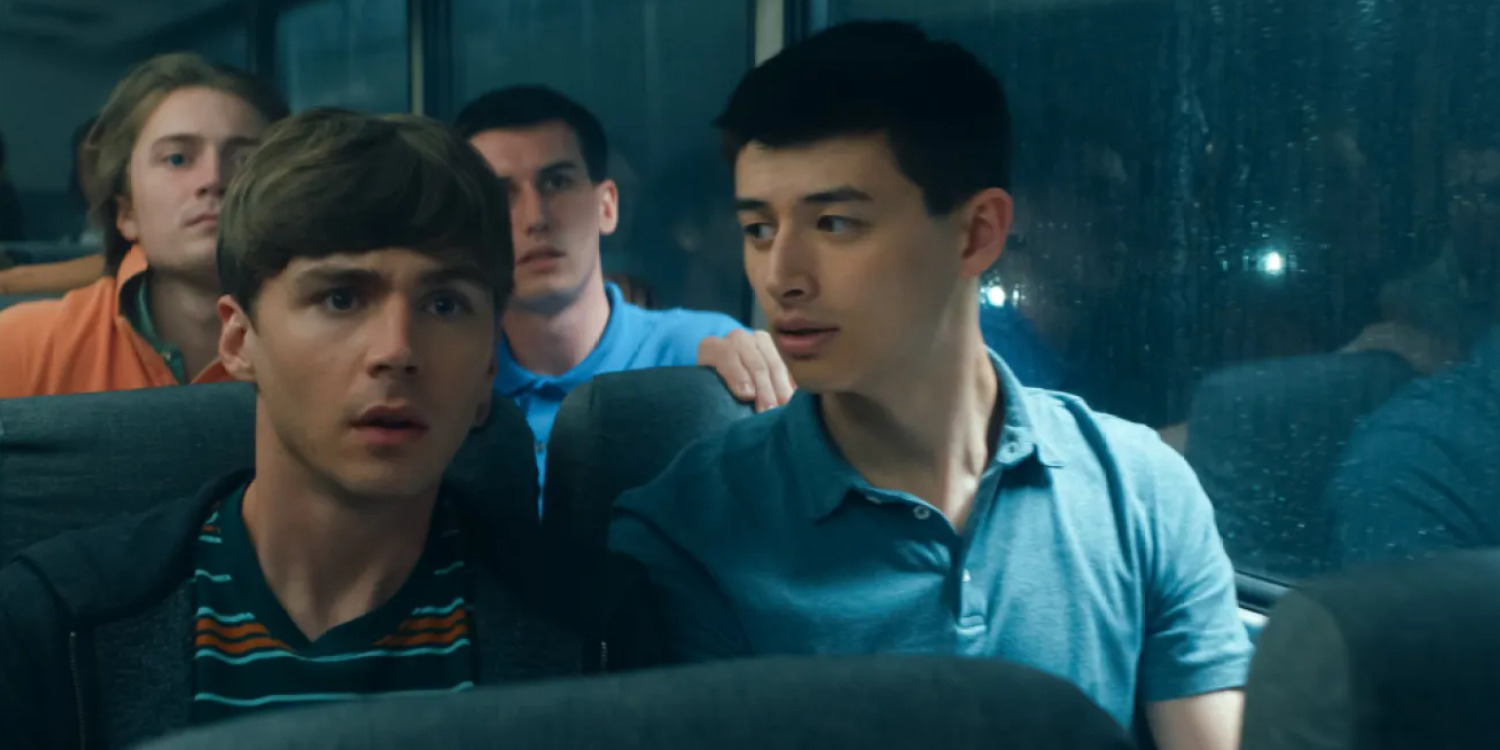
Initially, Cameron convinces himself that the experience would be nothing worse than a summer camp. Yet, the error of his assumptions became evident to him soon after his first day as a recruit. The Sergeants and the drill instructors assigned to his platoon run a tight ship, liberal in doling out insults. Thus, realizing the boot camp is no better than the homophobic world outside, the teenager decides to mess up the initiation pull-up exercise to ensure he secures a one-way ticket back home. Nonetheless, he ends up changing his mind, mostly in an effort to inspire his fellow recruit, John Bowman. Yet, feelings of insecurity linger. These emotions become stronger once their racist drill sergeant, Knox, gets transferred, bringing Sgt. Sullivan to the camp. Unfortunately for Cameron, he’s pretty sure the new sergeant can see through his proverbial glass-paned closet.
Thus, in the days that follow, Sullivan’s training regimen remains unforgiving, especially once he begins pitching Cameron and Ray against each other, in clear attempts to ignite a rivalry between them. Additionally, the former also earns the position of the scribe, which invites its own fair share of problems. Still, little by little, Cameron learns to stand up for himself, for better or for worse. Furthermore, he also begins to bond with some of the other recruits, like Nash and his bunkmate, Ochoa. Simultaneously, trouble seems to come for Sullivan in the form of the NCIS sniffing around him and his records. Additionally, he also continues to take issue with Cameron and Ray’s close relationship. This becomes a prominent problem when he discovers that Cameron stole toilet paper from their neighbor’s platoon in an attempt to start a rivalry that might uplift Ray’s spirits by giving him a mission to fight for. The ensuing confrontation between the sergeant and the recruit becomes a turning point in their dynamic, wherein the latter realizes the former’s intensity is his own twisted attempt to whip the teenager into the shape required to brave the Marines.
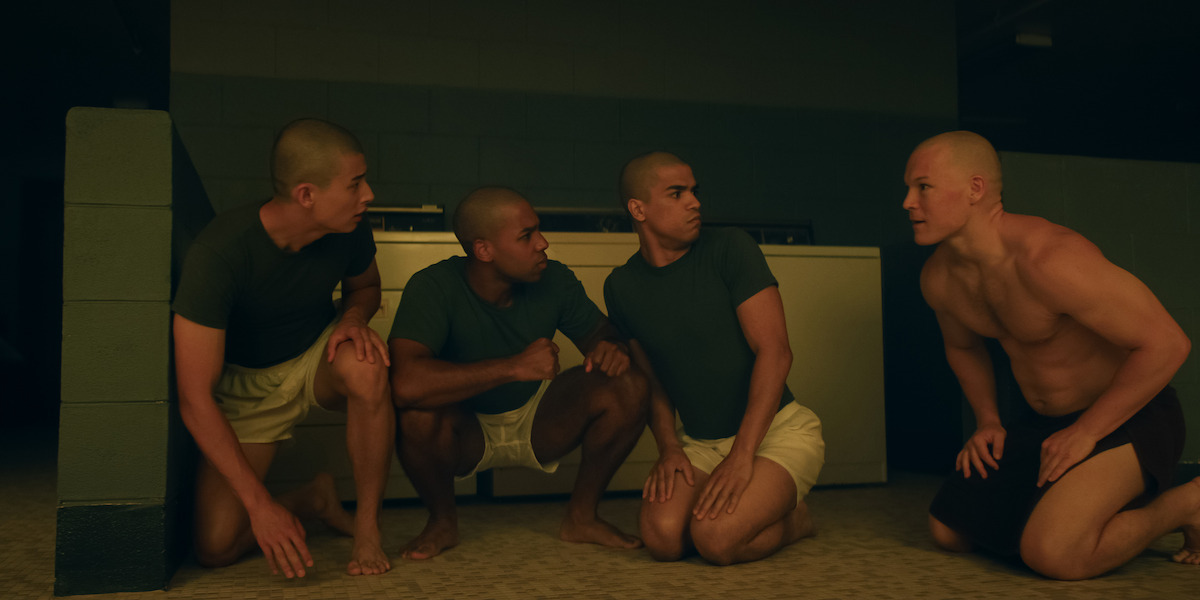
This leads Cameron to internalize the idea that he needs to kill his old self in order to survive in the world. Eventually, platoon 2032 is taken for rifleman practice, which ends in a disastrous tragedy. Ochoa learns about his beloved wife’s extramarital affair, which sends him into an episode that inevitably kills him. Naturally, this becomes a sobering time for the rest of the recruits, who mourn their brother’s death without any actual respite from their training and duties. Meanwhile, the NCIS Agent arrives at Captain Fajardo’s camp to ask Sullivan a few pointed questions about one of his fellow Marines, Major Wilkinson, who served with him at Guam. Around the same time, Platoon 2032 receives a new recruit, Jones, a rebellious young man who obviously wants out of the Marines. It doesn’t take long for either Cameron or Sullivan to clock the new recruit’s queer identity, which compels the sergeant to sow seeds of animosity between the pair to keep them away from each other. Ultimately, all of this culminates in the final test to determine the recruits’ future in the Marines: The Crucible.
Boots Ending: What Happens to Platoon 2032? What Does the Deployment News Mean For Them?
The crucible becomes the final stage that will determine whether or not the recruits of Platoon 2032 become official Marines. Across the board, each member has a unique reason of their own to enlist and pursue this military career. Santos is a father of two young daughters, who has been moved around the system for months due to a knee injury. Therefore, he’s eager to complete the boot camp this time around and finally return home to his family with a new title to show for himself. Meanwhile, Nash only joins in the service of his bigger dream to one day become the President of the country. As a black man, he knows that people would question his legitimacy in politics in the future simply because of their own prejudice. Consequently, in an attempt to avoid the criticism those before him have faced, he enlists in the Marines, despite his parents’ wishes, to prove his worth and serve his country.

On the other hand, John and Cody Bowman, brothers at perpetual odds, wish to continue their family’s legacy. As for Slovacek, his presence at the boot camp had little to do with his own intentions and more with the court case, which gave him a choice between the Marines and prison. While these different walks of life initially put all these recruits, alongside Cameron and Ray, at odds with one another, over time, they learn to rely on and uplift each other. While it’s no secret that the boot camps’ intense regimen and their superiors’ harsh guidance have their negative effects on each recruit, the overall experience also becomes transformative in a way unlike any other.
In the end, the recruits complete the Crucible, showcasing covert brotherhood. When Santos’ knee problem threatened to let him down once more, Ray and the others agreed to distribute the weight off his pack to ensure that everyone finishes the challenge together. Thus, once the 13 weeks of training end, the boys all find themselves newly christened Marines, bonded for life. Nonetheless, their journey doesn’t simply end there. While it is true that most of the recruits have their own reasons for joining the Marines, they all face a similar responsibility: defending their country in times of war. As it turns out, that time may be nearer than any of these men ever imagined. Cameron and Ray realize the same during a celebratory bar visit where the news on the TV informs them of the Defence Secretary’s plans to deploy US troops to the Middle East for what will become the Iraq War. Therefore, it seems Platoon 2032’s worst nightmares are about to come true as they’ll likely be hurled into the heart of an unforgiving war.
Does Cameron Become a Marine? Why Does He Choose to Stay?
The day of the Crucible ends up very differently for Cameron than for his fellow recruits. Even so, despite the unique challenges he faces, he manages to complete the course and earn his stay in the Marines. However, in the end, all of it threatens to have been for nothing. Initially, when Cameron left home for the boot camp, his aloof mother, Barbara, took little notice of the entire affair. Still, once she realizes what has happened, she tries to get her son back, only to get swept up in her own vices. Between an attractive recruiter and a lucrative opportunity among a grieving mothers’ support group, she almost gives up on finding her son and attempting to help him out of the Marines. Although she never made it obvious, Barbara knows about her son’s sexuality. Thus, she’s privy to just how hard a career in the military will be for her son.
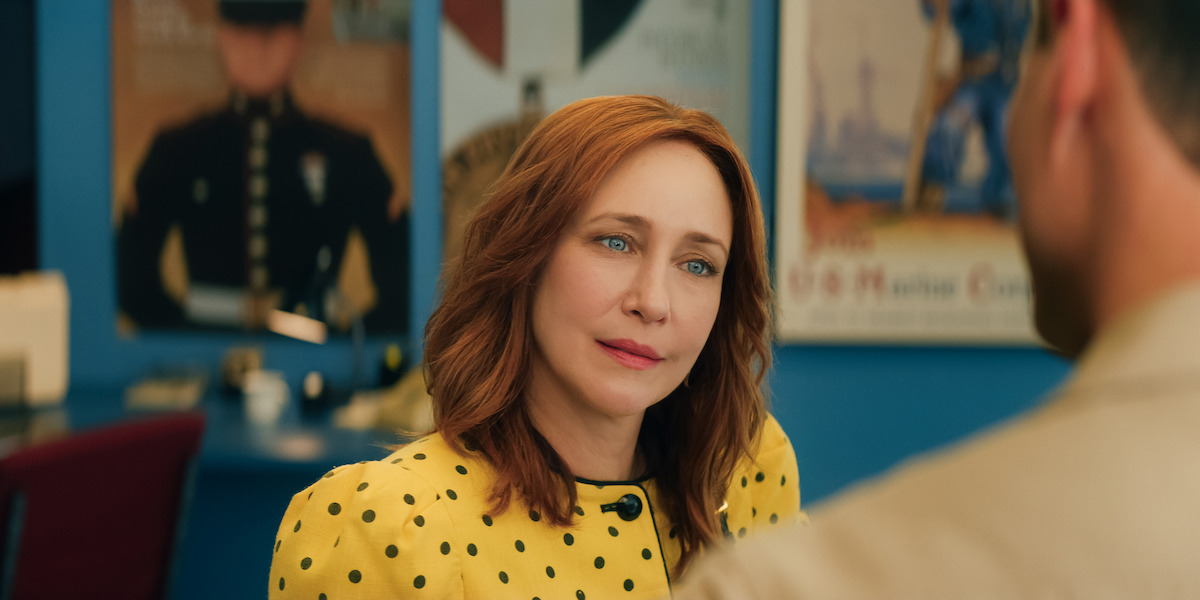
It’s this same anxiety that compels Barbara to march down to the Parris Island boot camp with a lifeboat for her son. As it turns out, a few years ago, the mother had messed with some documents to give her son an early admission into kindergarten. Therefore, while everyone was under the impression that Cameron was 18 years old, including the teenager himself, his real age is actually still 17. This makes him a minor and thus ineligible for the Marines without the permission of his legal guardians. Once Barbara informs Captain Fajardo of the same, it leaves her son with two alternatives: leave the entire boot camp experience behind like a fever dream or embrace his choices head-on. Cameron knows that his mother is attempting to give him a viable way out.
If he continues to pursue a career inside the military, he would end up like Sullivan, who had to hide his sexuality away until it eventually caught up to him. Since being queer in the military is a crime, becoming a Marine would ensure he could never visibly live as his true self without running the risk of a dishonorable discharge and imprisonment. Furthermore, as his inner voice, the embodiment of the parts of himself he keeps hidden from the world, argues, the boot camp had already served its purpose. Cameron wanted a new beginning, which would allow him to better deal with the world. Being a recruit has already taught him confidence, camaraderie, and more. Still, the teenager realizes it has also exposed him to a world that he now wants for himself. In the past few weeks, he has begun to identify himself as a Marine, a title he wasn’t so easily willing to give up. For the same reason, he compels his mother to sign the waiver, which ultimately helps him legitimize his time at the boot camp.
What Happened to Sullivan? Where Did He Go?
Sullivan’s narrative throughout the story remains a tragic yet intriguing one. He’s introduced into the story as a harsh, authority figure who seems to have a particular fixation on Cameron. He’s continuously trying to drive a wedge between himself and Ray, his sole support system in the camp, who splits his focus between doing his best and helping his friend out. At the same time, while he continuously targets Cameron, he also seems genuinely invested in his growth as a recruit, inspiring and guiding him toward success. Thus, it isn’t long before it becomes evident that the sergeant’s connection to the teenager likely comes from a sense of self-reflection. The reason he’s fixated on Cameron is that he can see his own past self in the boy. Much like the protagonist, Sullivan is also a closeted man in the military. One of the only differences between them is that the latter has experienced the cost of suppressing his identity in favor of his career.
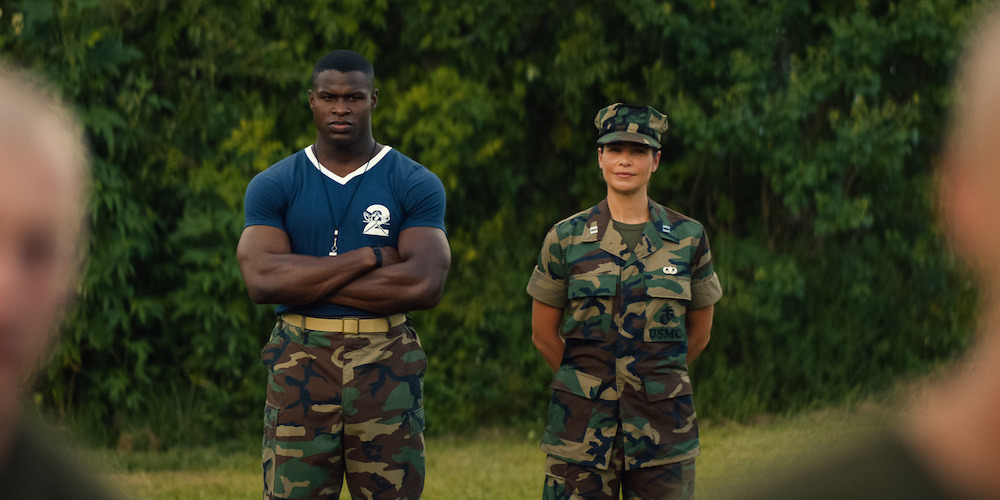
Before arriving at Parris Island, Sullivan served in Recon at Guam. There, behind closed doors, he was in a relationship with a Major on the location, Wilkinson. The two men used to book motel rooms together, spending the nights with each other, slowly but surely falling in love. However, soon enough, rumors begin spreading about the Major, compelling his bunkmate, Rob, to warn him against being seen with the man. This sets off a fight or flight response in Sullivan. Initially, he and Wilkinson had made plans to leave the Marines together to actually try to build a life together. The feelings they had for each other were real, but so were the sergeant’s fears. Ultimately, he ended up choosing the coward’s way out.
Sullivan put in a transfer request out of Guam for himself and made up a story of being approached by Wilkinson to explain his abrupt decision to Rob. In a cruel turn of events, Rob ended up reporting the Major for the misconduct of homosexuality, an apparently legitimate violation in the military at the time. For the same reason, the NCIS came after Sullivan at the boot camp to interrogate him about his relationship with Wilkinson. Although he denied any and all accusations, the tattoo over his heart, identical to the one the Major has, said everything. As such, days later, he received the news of Wilkinson’s arrest and imprisonment. From there, he realized it was only a matter of time before they would come after him, trying to verify similar claims.
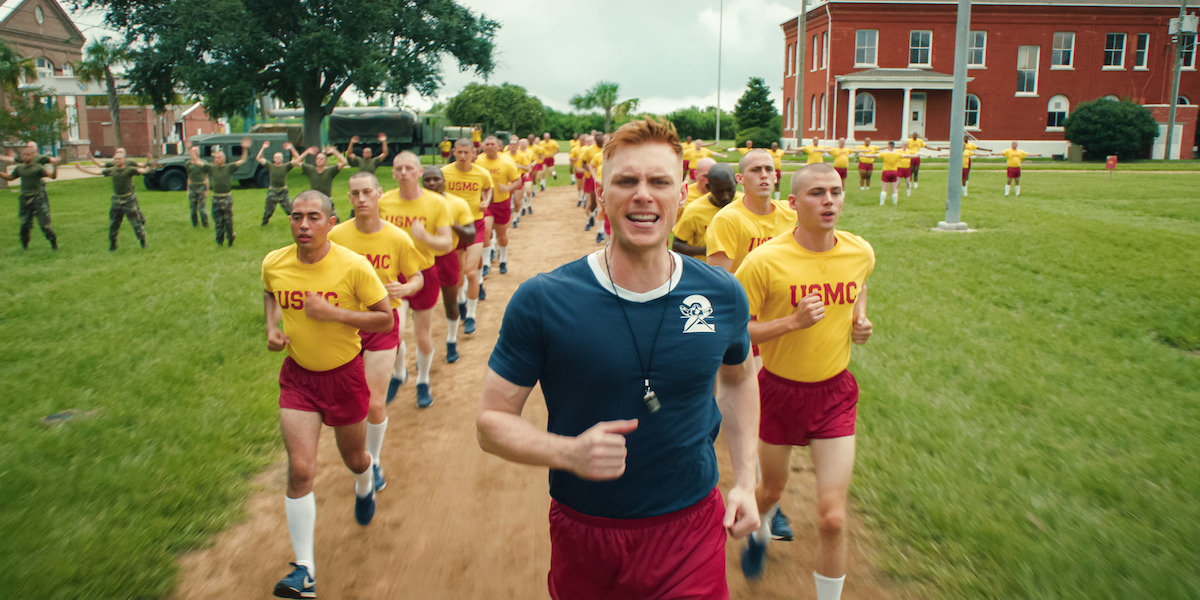
Even though Fajardo tries to assure him they would deal with the issue if it knocked on their door, Sullivan knew her words were well-intentioned but ultimately empty platitudes. Soon enough, he finds himself getting into a bar fight as a way to cope with his mounting grief. As this incident leaves a civilian in a coma, it opens the sergeant up to a serious lawsuit. Around the same time, Platoon 2032 goes out into the woods for the Crucible, from where Jones, who has a habit of sleepwalking, goes missing. Therefore, Sullivan assigns himself to the mission of finding the young man, one that Cameron ends up following him into. Once the duo manages to save Jones, the sergeant realizes that Cameron truly has what it takes to be a Marine. Therefore, considering his work done, Sullivan decides to leave this life behind him and goes AWOL. In the end, after years of a decorated career, Sullivan runs away from the Marines, knowing the weight of his secret will inevitably drown him otherwise.
Does Ray Become Honor Man?
Throughout the story, Ray’s main motivation for enlisting in the Marines stems from his relationship with his father. The latter has always been an authoritative figure in the teenager’s life, who has big expectations for him. In fact, his upbringing has directly resulted in a mindset that turns even the smallest of slip-ups into an overwhelming failure in his mind. Consequently, he was distraught when his anxiety issues ruined his chances at the Air Force. Still, he wants to make his father proud by becoming a Marine. More importantly, he wants to earn the title of the Honor Man, proving that he was the best of the best among his platoons. For the same reason, Ray continues to push himself to the limit in every sphere of training, from combat and marksmanship to navigation.
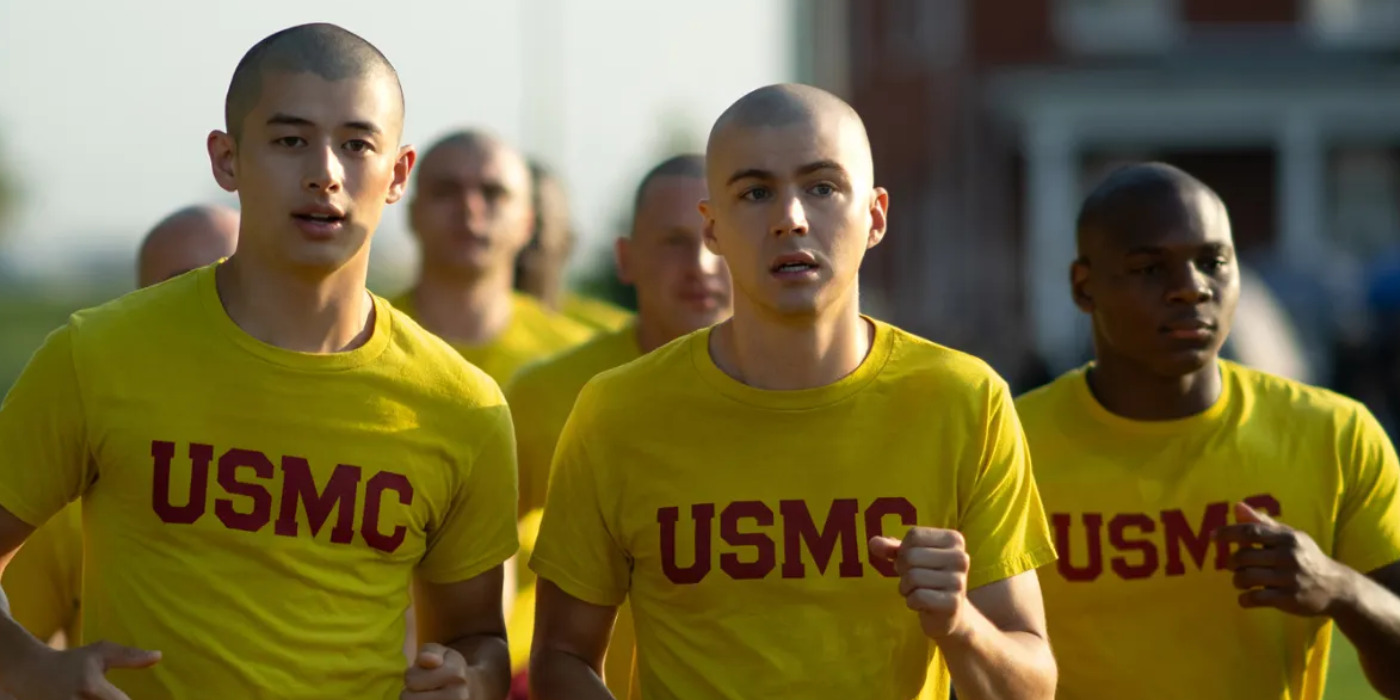
Yet, toward the end of the line, when the Crucible comes around, he finds himself at a crossroads. On the morning of the challenge, Jones goes missing, compelling Cameron to go after him in the woods in an attempt to find him. Although he tells his best friend to stay back, Ray ends up following him. Despite everything that happened between them at boot camp, their friendship remains strong, preventing the young man from leaving his friend to face a mission on his own. In the end, Cameron convinces him to rejoin the platoon and finish the Crucible on his own. It’s only when he realizes that his friend can truly look out for himself that Ray decides to leave. However, this initial insubordination ends up costing him his perfect streak. As a result, he loses out on the Honur Man position to Nash. Even so, in the end, he doesn’t regret any of his actions, happy to put his friendships above all else.
Read More: Is Boots Based on a True Story?

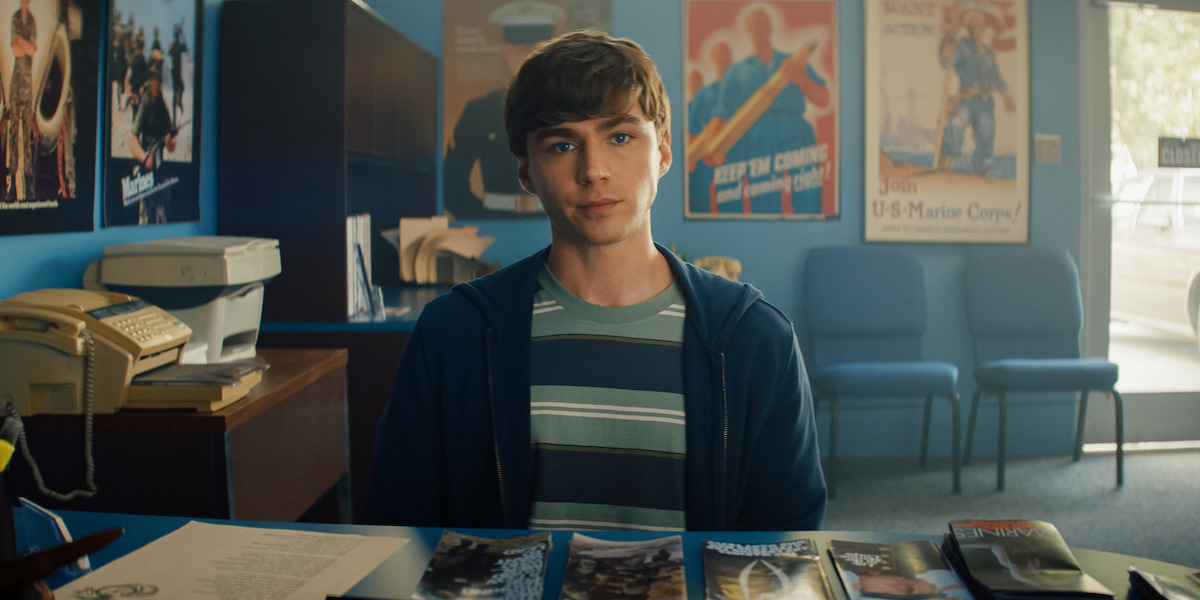
You must be logged in to post a comment.